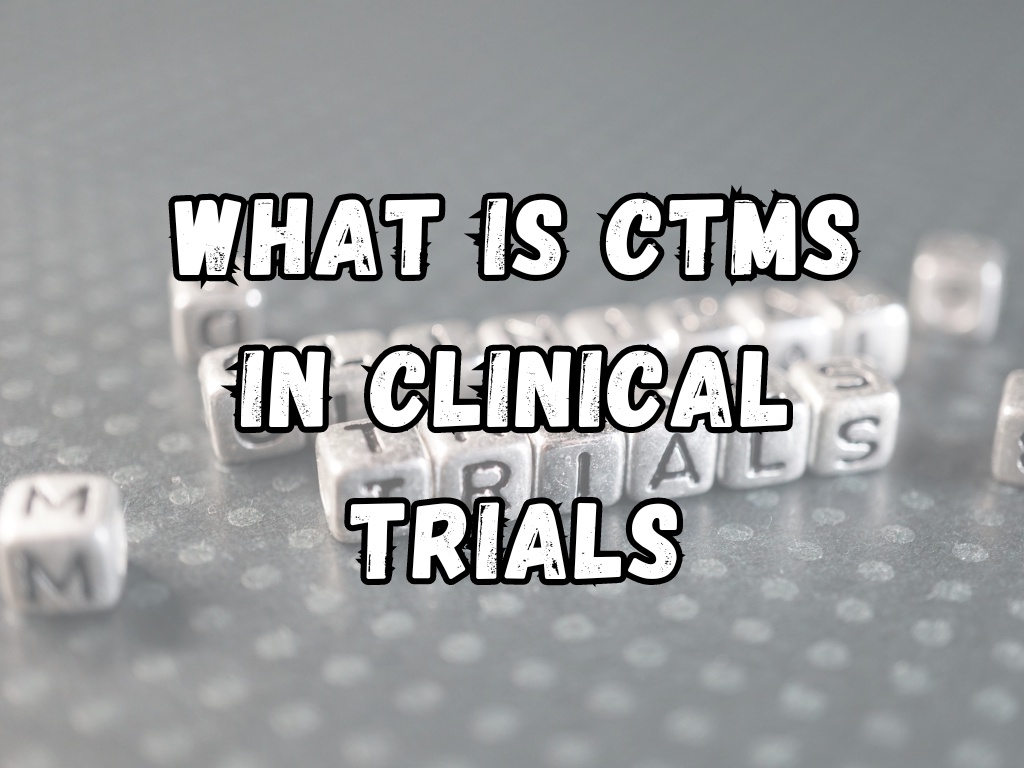Clinical trials are the backbone of medical research, driving advancements in healthcare and improving patient outcomes. Yet, conducting a clinical trial is a complex and highly regulated process. To streamline and enhance the management of these trials, Clinical Trial Management Systems (CTMS) have become invaluable tools. In this article, we will delve into the world of CTMS, exploring their purpose, key features, benefits, and their role in shaping the future of clinical trials.
Purpose of CTMS
- Managing Clinical Trial Data: One of the primary functions of a CTMS is to efficiently collect, store, and manage vast amounts of clinical trial data. This includes patient information, study protocols, regulatory documents, and more.
- Streamlining Clinical Trial Operations: CTMS simplifies the day-to-day tasks associated with a trial, such as patient enrollment, scheduling, and monitoring. This leads to increased efficiency and reduced operational complexities.
- Enhancing Collaboration and Communication: CTMS serves as a centralized platform for research teams, allowing seamless communication and collaboration among researchers, clinicians, and administrators. This fosters a more connected and productive work environment.
- Ensuring Regulatory Compliance: Compliance with stringent regulatory requirements is paramount in clinical trials. CTMS aids in maintaining the necessary documentation, audit trails, and adherence to Good Clinical Practice (GCP) guidelines.
Key Features of CTMS
- Patient Enrollment and Recruitment: CTMS helps identify eligible participants, track their enrollment, and manage informed consent processes.
- Study Protocol Management: It provides a structured framework for defining study protocols, ensuring that all study requirements are met.
- Investigator and Site Management: CTMS facilitates the selection and management of investigators and sites, ensuring they meet regulatory standards.
- Data Collection and Monitoring: The system allows for real-time data collection and monitoring, reducing the risk of errors and promoting data integrity.
- Budget and Financial Management: CTMS helps manage trial budgets, track expenses, and allocate resources efficiently.
- Reporting and Analytics: It offers tools for generating reports, tracking progress, and analyzing data to make informed decisions.
- Regulatory Compliance and Document Management: CTMS assists in maintaining documentation, managing approvals, and ensuring compliance throughout the trial's lifecycle.
Benefits of Using CTMS
- Improved Efficiency and Productivity: CTMS streamlines operations, reducing manual and time-consuming tasks. This efficiency allows researchers to focus more on the science and less on administrative work.
- Real-time Data Access and Monitoring: With CTMS, researchers can access and monitor data in real-time, making it easier to identify and address issues promptly.
- Enhanced Data Quality and Integrity: Automated data collection and validation processes minimize errors, improving the quality and integrity of the trial data.
- Cost Reduction: By automating various aspects of trial management, CTMS helps control costs, reduce resource wastage, and optimize budget allocation.
- Better Regulatory Compliance: CTMS enforces compliance with regulations and standards, reducing the risk of non-compliance and related penalties.
- Streamlined Communication and Collaboration: The system promotes better communication and collaboration, enabling efficient knowledge sharing among team members.
Challenges and Limitations of CTMS
- Implementation and Training Challenges: Implementing a CTMS can be complex and may require training for research teams. Additionally, it may take time for users to adapt to the system.
- Cost and Resource Constraints: The initial investment and maintenance costs associated with CTMS can be significant, which may pose challenges for smaller research institutions or organizations with limited resources.
- Data Security and Privacy Concerns: Safeguarding patient data and maintaining privacy are crucial in clinical trials. CTMS systems must have robust security measures in place to protect sensitive information.
Case Studies: Examples of CTMS in Action
Pharma Company X's Use of CTMS in Clinical Trials
Pharma Company X, a global pharmaceutical leader, implemented CTMS to streamline its clinical trials. By doing so, they experienced a 30% reduction in trial operational costs and a 40% increase in data quality. The system allowed them to centralize data, collaborate seamlessly across their international sites, and adhere to regulatory standards consistently.
Academic Medical Center Y's Experience with CTMS
Academic Medical Center Y, a leading research institution, integrated CTMS into its research activities. This led to improved patient recruitment, shortened trial timelines, and enhanced collaboration between researchers. As a result, the center successfully conducted more trials, contributing significantly to medical science.
Future Trends in CTMS
- Integration with EHRs and Wearable Devices: CTMS is likely to integrate with Electronic Health Records (EHRs) and wearable devices to collect more diverse and comprehensive patient data.
- Artificial Intelligence and Machine Learning Applications: AI and ML will be used to analyze the vast amounts of data generated in clinical trials, offering insights that can lead to more informed decision-making.
- Blockchain for Data Security and Transparency: Blockchain technology is expected to play a pivotal role in ensuring data security and transparency in clinical trials, reducing fraud and data tampering risks.
Conclusion
Clinical Trial Management Systems have revolutionized the way clinical trials are conducted. By simplifying operations, enhancing data quality, and ensuring regulatory compliance, CTMS systems have become essential tools for researchers and organizations involved in medical research. With ongoing advancements and an evolving landscape, CTMS is set to play a pivotal role in shaping the future of clinical trials, ultimately leading to better healthcare outcomes for all. As the healthcare industry continues to evolve, CTMS will remain at the forefront of innovation, making clinical trials more efficient and effective for a healthier tomorrow.


No comments yet